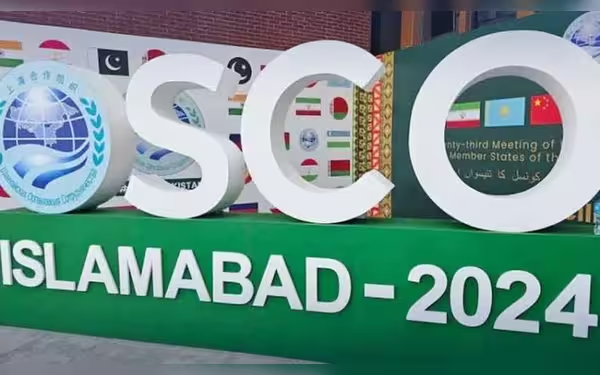Thursday, November 7, 2024 05:33 AM
Pakistan-China Agreements Enhance Economic Stability and Infrastructure Growth
- China invests $6.8 billion in ML-1 railway project.
- Gwadar International Airport inaugurated to boost trade.
- New financial cooperation to stabilize Pakistani Rupee.
 Image Credits: nation_pk
Image Credits: nation_pkPakistan and China forge agreements to enhance economic stability and infrastructure, promising a brighter future for the nation.
Pakistan is currently witnessing a significant shift in its economic landscape, largely due to the proactive measures taken by the Special Investment Facilitation Council (SIFC) and a series of pivotal agreements with China. These developments are not just numbers on a balance sheet; they represent a concerted effort to stabilize the economy and enhance infrastructure, which is crucial for the country’s growth.
At the recent Shanghai Cooperation Organisation (SCO) Summit, which was hosted by Pakistan, the visit of the Chinese Premier resulted in several impactful agreements. One of the most notable is the $6.8 billion investment earmarked for the ML-1 railway project. This ambitious project is set to be completed in three phases, and it promises to revolutionize rail transport in the region. In addition to this, the agreements also encompass substantial infrastructure projects, including a $400 million motorway connecting Sukkur to Hyderabad and a $1 billion road project along the Karakoram Highway. These projects are expected to not only improve connectivity but also stimulate economic activity in the areas they serve.
Moreover, the inauguration of the Gwadar International Airport, built at a cost of $200 million under the China-Pakistan Economic Corridor (CPEC), marks another significant milestone. This airport is poised to enhance trade and tourism, further integrating Pakistan into the global economy. The agreements also extend to financial cooperation, with new Memorandums of Understanding (MoUs) signed between the State Bank of Pakistan and the People's Bank of China, focusing on currency swap arrangements. This is a strategic move that can help stabilize the Pakistani Rupee and facilitate smoother trade between the two nations.
In addition to infrastructure and financial agreements, the collaboration between Pakistan and China also addresses critical sectors such as food security, healthcare, and education. The SIFC is playing a vital role in facilitating these initiatives, ensuring that the benefits of these agreements reach the broader population.
Successfully hosting the SCO Summit has not only showcased Pakistan's diplomatic capabilities but has also elevated its international standing. This event has opened new avenues for foreign investment and strengthened economic ties with China, which is essential for Pakistan's long-term growth. As these agreements begin to take shape, they hold the promise of a more stable and prosperous economic future for Pakistan.
The recent agreements between Pakistan and China signify more than just financial transactions; they represent a strategic partnership aimed at fostering economic stability and infrastructure development. As these projects unfold, they will likely create jobs, improve living standards, and enhance the overall quality of life for many Pakistanis. The road ahead may be challenging, but with strong international partnerships and a clear vision, Pakistan is on the path to a brighter economic future.













